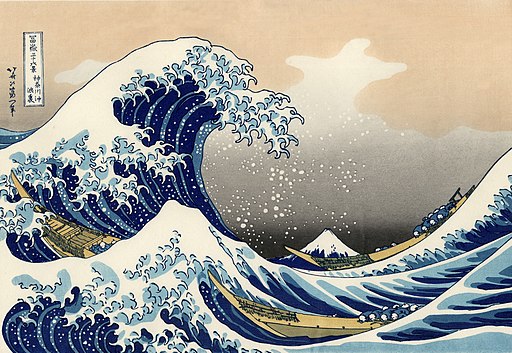Steel has always been a competitive industry. However, U.S. steel makers have been increasingly complaining about foreign competitors selling steel below what it costs to make. This is called dumping, and according to Nucor (NYSE: NUE) CEO John Ferriola, it's the biggest risk the steel industry faces.
Too much steel
Dumping comes about when a steel maker sells steel products in a foreign country for less than they cost to manufacture. How can a company do that? The first ill isn't actually dumping, it's overcapacity.
Running a steel mill is an expensive proposition. The more you utilize a mill, the more the costs can be spread out over finished product. A few years ago, demand for steel, particularly in China, was huge and companies around the world increased production to meet that demand.

(Source: Alfred T. Palmer, via Wikimedia Commons)
However, China's growth has started to slow and so, too, has its demand for steel. ArcelorMittal (NYSE: MT), a global steel giant, is calling for Chinese demand growth to fall by as much as 50% year over year in 2014 alone. So all of the new production brought on line to serve emerging economies, particularly China, isn't needed right now.
Nucor's Ferriola was quite direct about the issue during the second quarter conference call: "A significant portion of this import surge is being driven by worldwide overcapacity that continues to operate as a result of illegal government subsidies and other trade law violations." Essentially, countries like China are providing financial support to keep their steel mills running at high capacities, but without adequate domestic demand, the mills are willing to offload products wherever they can and undercut on pricing to do it.
China and who else?
China is the country that's most often singled out by Nucor, however it isn't alone. For example, the United States has won dumping cases against India, Indonesia, Taiwan, Thailand, and Ukraine. Korea is getting in on this act, too. And the U.S. government is currently looking to see if Mexico and Turkey are giving illegal assistance to their steel makers.
If that seems like a lot of countries it's because it is. Nucor's Ferriola has described it as a "Tsunami." So why not step in to stop the onslaught? The U.S. steel industry is working on it, but it has to take these fights on product by product. For example, the dispute over Mexico and Turkey is about just rebar. And the process isn't easy.

(Source: Katsushika Hokusai, via Wikimedia Commons)
Rick Blume, a general manager at Nucor, recently explained to the U.S. Senate that "the Commerce Department found that the Turkish government was giving its producers energy subsidies, but then concluded that these subsidies had no value. This makes no sense, given the energy-intensive nature of steelmaking."
Worse, he continued, "Even when we win a case, too often the dumped products keep pouring in and causing further injury. After trade relief was granted on oil country tubular goods ('OCTG') from China in 2010, Chinese producers shifted minor finishing operations to other countries such as Indonesia to evade the dumping duties." Like cockroaches, the steel finds a new way in and U.S. steel makers have to fight another battle. And while this particular issue was eventually dealt with, an exasperated Blume pointed out that "it took 18 months!"
The good fight
On some level, this sounds like a quixotic endeavor that can never be truly won. However, Nucor and other steel makers are putting up a good fight and slowly making progress. Nucor's CEO Ferriola, for example, is "a little bit more optimistic that our government is finally getting to understand the importance of these trade cases and the impact that [dumping] has on our economy."
That said, the dumping issue isn't going away anytime soon. And if you watch the steel industry you need to pay close attention to trade cases; they are an increasingly important key to the U.S. steel industry's success or failure.




